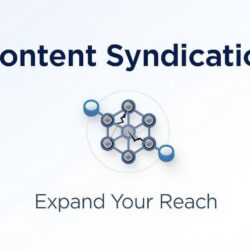As digital transformation accelerates in 2025, marketing professionals face growing pressure to deliver results that are data-driven and personalized. The need for intelligent and scalable campaign management has never been greater. This is where B2B Marketing Automation comes into play. It represents the fusion of technology, analytics, and creativity, enabling businesses to create smarter campaigns that adapt dynamically to buyer behavior. Through automation, organizations can drive consistent engagement, improve return on investment, and strengthen long-term customer relationships.
The Evolution of B2B Marketing Automation
Over the past decade, marketing has shifted from one-size-fits-all campaigns to personalized engagement based on buyer intent and behavior. B2B Marketing Automation has evolved from simple email automation tools into comprehensive systems that integrate artificial intelligence, machine learning, and predictive analytics.
In 2025, automation platforms have become the foundation of strategic marketing operations. They connect every stage of the buyer journey, from lead acquisition and nurturing to post-sale engagement. The result is a unified system that ensures every touchpoint delivers value, consistency, and relevance.
Why Smarter Campaigns Require Automation
Modern marketing success depends on the ability to make data-informed decisions and act on them instantly. Manual campaign management is no longer sufficient for the scale and complexity of today’s B2B environment. B2B Marketing Automation empowers marketers to analyze behavior, trigger personalized responses, and optimize performance automatically.
Smarter campaigns are driven by technology that understands the audience at a deeper level. Automation allows marketers to predict when a prospect is ready to engage, what message resonates most, and which channel will yield the highest response. This precision transforms campaigns from static efforts into adaptive ecosystems.
Core Features that Power Smarter Campaigns
Successful B2B Marketing Automation systems combine several advanced features that enable intelligent campaign execution.
1. Multi-Channel Integration: Automation unifies channels such as email, social media, and content platforms to create consistent communication.
2. Dynamic Segmentation: Leads are grouped by behavior, engagement level, or intent, ensuring messages align with their current position in the buyer journey.
3. Behavioral Triggers: Automated actions are triggered by specific behaviors like form submissions, downloads, or website visits, ensuring timely engagement.
4. Predictive Analytics: Data-driven algorithms identify patterns in customer behavior to forecast future actions and guide strategy adjustments.
5. Real-Time Reporting: Performance metrics are continuously monitored, allowing marketers to measure impact and refine campaigns on the go.
These capabilities enable automation systems to operate intelligently, creating a closed-loop environment for continuous improvement.
The Role of Data in Campaign Optimization
Data serves as the foundation of effective B2B Marketing Automation. Every digital interaction generates valuable insights into customer preferences and intent. Automation tools capture and analyze this data to shape campaigns that resonate with the target audience.
By tracking metrics such as engagement rate, lead quality, and conversion path, businesses can refine their content strategy and messaging approach. Automation also enables real-time feedback loops, ensuring that adjustments are made immediately rather than waiting for campaign completion. This agility leads to better outcomes and stronger customer connections.
Enhancing Personalization with Automation
Personalization is the defining factor of marketing success in 2025. Buyers expect communications that reflect their needs, challenges, and timing. Automation provides the framework to deliver this at scale. Through advanced segmentation and data mapping, marketing teams can tailor messages to each lead’s profile and behavior.
For example, when a potential customer interacts with a product demo or whitepaper, the automation system can automatically send follow-up materials related to that topic. Over time, the system learns which content drives engagement and adjusts future outreach accordingly. This level of personalization strengthens trust and accelerates conversion.
How Automation Strengthens the Sales and Marketing Connection
A significant benefit of B2B Marketing Automation is its ability to align sales and marketing operations. In many organizations, these teams work independently, leading to gaps in communication and inefficiencies. Automation bridges these gaps by creating a shared system of record.
Sales teams gain access to real-time insights about lead activity, such as which emails were opened, which content was viewed, and when the lead is most engaged. This data empowers sales professionals to follow up at the ideal time with contextually relevant offers. Marketing teams, in turn, gain visibility into deal progress, allowing them to refine nurturing campaigns based on actual sales feedback.
Overcoming Common Automation Challenges
While automation brings immense value, its implementation requires careful planning and management. One of the biggest challenges businesses face is data quality. Inaccurate or incomplete data can limit the effectiveness of even the most advanced automation systems. To overcome this, organizations should establish strict data governance practices that ensure accuracy and consistency.
Another challenge is balancing automation with a human touch. Over-reliance on technology can make campaigns feel impersonal. Successful marketers use automation to enhance, not replace, human creativity. They craft authentic content and use automation to deliver it at the perfect moment.
Finally, organizations must ensure their teams receive proper training on automation tools. Without full understanding, businesses risk underutilizing their technology investments.
Measuring the Impact of Smarter Campaigns
The success of B2B Marketing Automation lies in its ability to generate measurable results. Businesses can track lead engagement, conversion rates, and overall return on investment with greater accuracy than ever before.
Analytics dashboards provide a clear picture of which campaigns are performing best, which segments are most responsive, and where optimizations are needed. Over time, these insights form the foundation for continuous performance improvement. The result is a marketing system that becomes more intelligent and efficient with every campaign cycle.
The Future of Automated Campaign Management
Looking ahead, the future of B2B Marketing Automation will be defined by predictive intelligence and deeper integration across technologies. Automation platforms will work seamlessly with customer data platforms, artificial intelligence, and content management systems. This convergence will allow marketers to anticipate market trends, automate decision-making, and optimize performance without manual intervention.
The most successful businesses will be those that treat automation as a long-term strategic investment rather than a short-term solution. As automation technologies continue to mature, they will redefine what is possible in marketing performance, personalization, and scalability.
About Us
Acceligize is a global B2B demand-generation and technology marketing firm specializing in performance-driven lead generation solutions. Their services include content syndication, account-based marketing, intent and install-based targeting, and custom campaign strategies. Leveraging data science, technology, and human intelligence, Acceligize helps clients reach high-quality audiences and drive conversions across the full marketing funnel.




